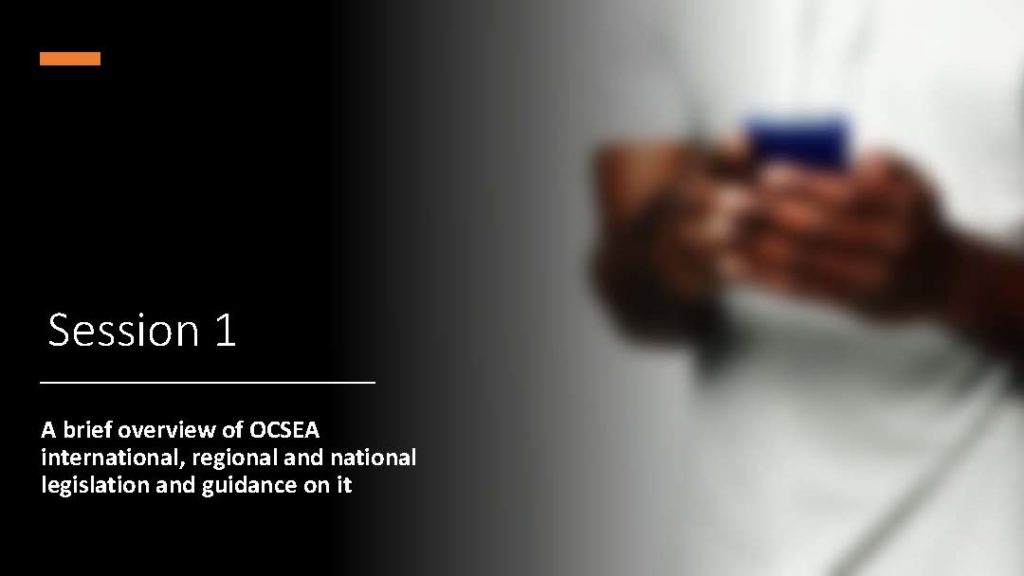Here’s what’s happening around the world in the area of child welfare and protection.
As children across the globe spend more of their time online, exacerbated by global lockdowns during the COVID-19 pandemic, it’s important that governments have clear online violence prevention and response strategy and action. In 2021 UNICEF Uganda contracted Maestral to conduct a full review of the existing information, education, and communication (IEC) materials for caregivers and children that support OCSEA prevention of and response. The Maestral team then delivered a Training of Trainers (ToT) to strengthen OCSEA knowledge and practice of participants from the education, social welfare, and justice sectors.
During the review, the team conducted 72 Key Informant Interviews and 12 Focus Group Discussions with children and caregivers across Uganda. Predominantly, findings echo those of Disrupting Harm Uganda,[1] which conducted field research with children across Uganda to capture their views and experiences of online violence. This field research also interviewed stakeholders from the education, social welfare, and justice sector, to gather a broad understanding of people’s understanding and working knowledge of OCSEA.
Key findings included:
– There are many great initiatives to both raise awareness of, and tackle OCSEA, but insufficient cross-sector, multi-disciplinary collaboration, and coordination amongst sectors.
– There is a specialist branch of the police, but within the wider judiciary, a lack of willingness to prosecute due to a lack of knowledge on OCSEA and its impact on children.

Image from the national-level five-day training of trainers PPT developed and conducted by Maestral International.
– There is an understanding of the need for a supportive reporting environment but an unclear reporting procedure, lack of sufficient trained social service workforce and police, and limited survivor support services.
– There is need to address the obstacles stopping children from reporting OCSEA and need for positive parenting programs to equip parents or caregivers with skills on how to support their children appropriately.
– Due to a lack of nationwide capacity-building, children, parents/caregivers, the public and child protection professionals are not aware of the risks and scale of the OCSEA; but there are pockets of society that are.[2]
– The existing national legislative and policy instruments are a positive step, can be enriched and the gaps addressed, to fully align with the UNCRC and other international and regional standards.
– There is a need to create uniform terminology data flow process and standard operating procedures for OCSEA to build data and evidence on OCSEA in In addition, there is need to ensure that OCSEA is mainstreamed into all VAC response and preventive standards and measures so that is integral to VAC programming.
Key informants made specific and overarching recommendations to prevent and respond to OCSEA. Maestral made additional complementing recommendations, which follow the WeProtect Model National response, looking at the importance of developing more robust legislation that criminalises OCSEA in all its forms, developing better cross-sector collaboration, improving support services for children and families, empowering children to know how to keep themselves and others safe online, and providing more tailored support to OCSEA survivors.
The Maestral team developed and conducted a national-level five-day training of trainers that covered the following components: 1) the basics of OCSEA; 2) how to adopt a child-centred, trauma-informed approach; 3) understanding perpetrators; 4) recognition, response and prosecution of OCSEA; and targeted training information for each stakeholder group (Justice Sector, Education Sector, and Social Welfare Sector). Through the ToT a pool of competent trainers was built to cascade the training on OCSEA across multiple sectors and create awareness within the communities across the country.
The following recommendations are from Maestral International, based on learning throughout the project. Though these recommendations are specific to the work in Uganda, many components can support the development of a robust OCSEA prevention and response framework in other countries.
Legal and policy environment – Governments should have comprehensive laws that cover all aspects of OCSEA and policies that outline the different institutional mandates and roles of different stakeholders in addressing OCSEA within a wider VAC framework. There should be clearly mapped pathways for the prevention and response to the different forms of violence including online violence. Legislation, policy and pathways should be regularly monitored and evaluated, with learning used to update them.
Reporting and response protocol and services – Governments should have: a) a clear process and referral pathway for responding to OCSEA outlined in key documents such as the case management standards and education guidelines; b) standardized indicators for monitoring children’s access and usage of the internet, and online experiences to allow for consistent and regular data collection to track trends and magnitude of the problem of online violence; and c) justice systems should have joint data systems on both perpetrators and child survivors to provide adequate support to survivors and proper handling of perpetrators.
Coordination and collaboration – coordination mechanisms for tailored support services to survivors of OCESA are important to assist children in better accessing professional help and legal remedies to the violence that they experienced online. Coordination systems should include the online industry and the media for awareness raising on OCSEA.